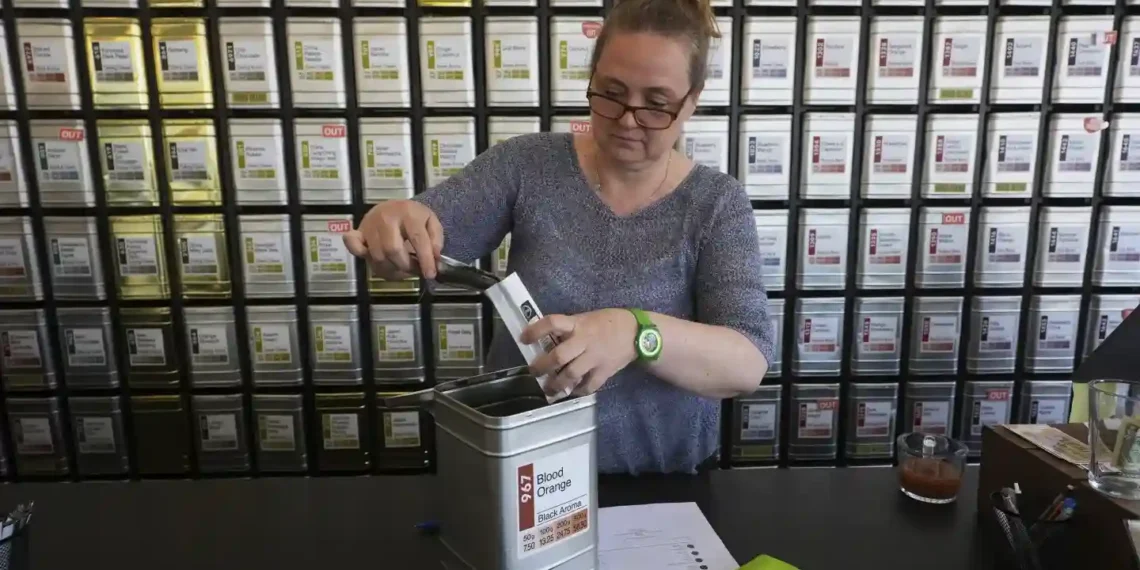‘Nowhere to Turn’: Small Businesses Struggle to Survive Amid Soaring China Tariffs
NEW YORK — For many American small business owners, the latest round of tariffs on Chinese imports has pushed them to the brink. With tariffs now as high as 145%, major product shipments are stranded overseas, invoices are piling up, and future operations are uncertain.
While President Donald Trump recently hinted that the tariffs could “come down substantially,” the damage is already being felt. For small businesses operating on tight margins, the financial strain and policy unpredictability have created a crisis with no clear end in sight.
In Manchester-by-the-Sea, Massachusetts, WS Game Company—a family-run business that creates deluxe editions of Hasbro classics like Monopoly and Scrabble—has seen its 25 years of growth abruptly stall.
The company’s games, which retail for $40 and were featured on Oprah’s Favorite Things list in 2024, are manufactured entirely in China. Now, three of its shipping containers—carrying $500,000 worth of finished games—are stuck overseas. More critically, the company lost $16 million in orders from three major U.S. retailers.
“We can’t just switch manufacturers overnight,” said owner Jonathan Silva. With only about four months of financial runway left, Silva warns, “These tariffs have disrupted our business and put us on the verge of insolvency.”
In Lexington, Kentucky, Jeremy Rice co-owns House, a home décor store that relies heavily on silk flowers from China—about 90% of their inventory.
Vendors are already hiking prices by 20% to 25%, and smaller suppliers are expected to raise them even higher. Despite ordering holiday stock early, Rice only has enough everyday inventory to last a few months.
“After that, I don’t know what we’re going to do,” he said, fearing a wave of small store closures similar to what happened during the Great Recession and the pandemic.
In Ann Arbor, Michigan, Lisa McDonald, owner of TeaHaus, says the tariffs have left her with a sinking feeling. Her shop, located near the University of Michigan, has served premium teas for nearly 18 years.
With the U.S. importing almost all of its tea due to climate and cost, McDonald can’t simply shift suppliers. Her premium blends—some priced up to $33 for a 50g bag—could become unaffordable if tariffs stay in place.
“We can’t just flip a switch and grow tea in America,” she said. “It’s not realistic.”
Jim Umlauf, owner of 4Knines in Oklahoma City, makes pet-friendly seat covers and cargo liners for vehicles—products that require specialized materials from China.
Umlauf tried moving production elsewhere after the 2018 tariffs but hit roadblocks. Now, with the newest tariffs in place, he says they’re barely surviving. “We have a limited amount of inventory left, and without some relief, we’ll run out soon.”
Frustrated by the lack of response from government officials, Umlauf added: “It’s time for policymakers to understand that trade policy affects real people, not just stock prices.”
For small businesses across America—from tea sellers to board game makers—the tariff war with China is doing more than reshaping trade policy. It’s threatening their very survival. Without swift relief or support, many could soon shut their doors for good.
This article was rewritten by JournosNews.com based on verified reporting from trusted sources. The content has been independently reviewed, fact-checked, and edited for accuracy, neutrality, tone, and global readability in accordance with Google News and AdSense standards.
All opinions, quotes, or statements from contributors, experts, or sourced organizations do not necessarily reflect the views of JournosNews.com. JournosNews.com maintains full editorial independence from any external funders, sponsors, or organizations.
Stay informed with JournosNews.com — your trusted source for verified global reporting and in-depth analysis. Follow us on Google News, BlueSky, and X for real-time updates.














